Repotting Peperomia Plants (Plus The Proven Soil Mix To Use!)
Peperomias are among the easiest houseplants to grow and plainly put, I think they’re the cat’s meow. Have you ever given one a try? Those sold in the trade (and there is a wide variety of them) are either tabletop or hanging plants all with attractive foliage. Mine needed a new mix. I thought I’d share with you my process with repotting peperomia plants. I’ve got a soil blend which has proven to work.
The ones which I’m repotting here are the very popular Baby Rubber Plant (Peperomia obtusifolia) and the Rainbow Peperomia (Peperomia clusiifolia “rainbow”). Tabletop peperomias stay small and most max out at 12″ by 12″. Their roots aren’t extensive, and for this reason, they don’t need frequent repotting.
Some Of Our General Houseplant Guides For Your Reference:
- 3 Ways To Successfully Fertilize Indoor Plants
- How to Clean Houseplants
- Winter Houseplant Care Guide
- Plant Humidity: How I Increase Humidity For Houseplants
- Buying Houseplants: 14 Tips For Indoor Gardening Newbies
- 11 Pet-Friendly Houseplants
Repotting Peperomias Plants
Peperomias like being a bit tight in their pots. I usually don’t repot them unless the roots are coming out the drain holes. This wasn’t the case with mine but here’s why I repotted them. I’ve had these peperomias for almost 2 years now. Who knows old the soil mix is. Perhaps they were at the growers for a year or 2 before being shipped off to the retail nursery where I bought them. The soil just looked like it needed to be refreshed.
I live in Tucson where it’s hot and dry. These peperomias needed to be watered more frequently than my multitude of other houseplants. Time for the special mix to remedy that. Another reason: some growers grow many different types of houseplants and use the same mix for all. With some houseplants, I use straight potting soil and others I do my own blend.
HEAD’S UP: I’ve done this general guide to repotting plants geared for beginning gardeners which you’ll find helpful.
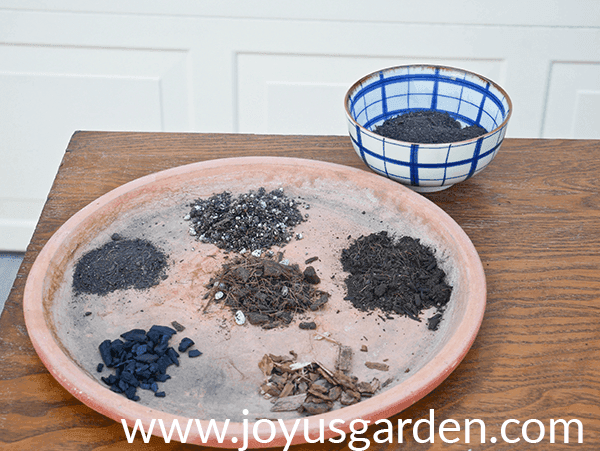
The ingredients in the saucer from the top going clockwise: Smart Naturals potting soil, local potting soil (you can see it’s full of coco fiber), orchid bark, charcoal & local compost. That’s worm compost in the bowl.
Proven Soil Mix for Repotting Peperomia Plants
A local potting soil
It was the 1st time I bought this & discovered it wasn’t right for houseplants. Because it contains a good amount of coco fiber (coco coir), I could use it for peperomias. It would be suitable for hoyas too. Not as the sole mix but blended with the ingredients below. You could sub coco coir here.
Fox Farm Smart Naturals Potting Soil
It has lots of good stuff in it that houseplants love.
Orchid bark
Many peperomias are epiphytic. Epiphytes love orchid bark.
Charcoal
This is optional but what charcoal does is improve the drainage & absorb impurities & odors. For this reason, it’s great to mix into your soil mix when doing any indoor potting project.
Compost
Just a handful of this into the pail because the Smart Naturals already has nutrients in it.
Worm Compost
This is my favorite amendment, which I use sparingly because it’s rich. I’m currently using Worm Gold Plus. Here’s why I like it so much. Read about my worm compost/compost feeding right here.
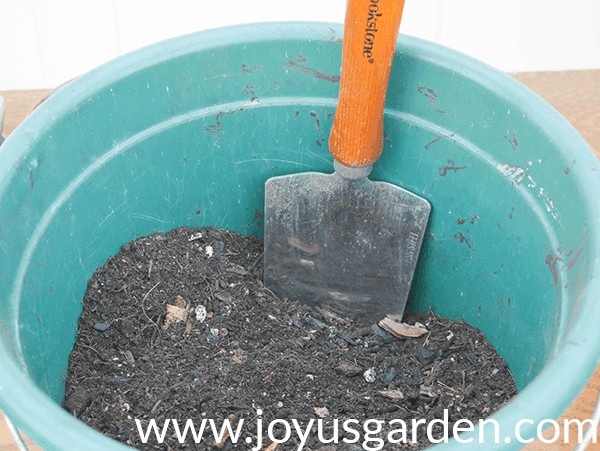
When using more than 3 ingredients, I find it easiest to mix it all up in a pail. I also do this when the pots I’m transplanting into are a small size.
Ratio and Blend of Soil Mix
I mixed the 2 potting soils at a ratio of 1:1 with a few handfuls each of the orchid bark and the charcoal is thrown into the pail. An 1/8″ layer of worm compost was added at the end as topdressing.
Peperomias like a light but rich mix which drains well. They rot out easily so you want the mix to contain a good amount of something like coco coir. Growers love coco coir as a growing medium because it holds water well yet still provides good drainage and aeration. It’s much more environmentally friendly than peat moss which is considered to be a non-renewable resource but has all the same properties.
Other Soil Mixes to Try
1.) 1/2 potting soil to 1/2 of cup succulent & cactus mix
2.) 1/2 potting soil to 1/2 coco coir
3.) 1/2 succulent & cactus mix to 1/2 coco coir
4.) 1/2 potting soil to 1/2 perlite or pumice
5.) 1/2 potting soil to 1/2 orchid bark
6.) 1/3 potting soil to 1/3 coco coir to 1/3 perlite or pumice
You get the idea. There are many opinions on the blend to use but I’m sure you can find 1 which you and your peperomias like the best. Rich, light, and well drained is the key.
Repotting Peperomia Plants
Nothing out of the ordinary on the repotting technique here. You can watch the video to see how it’s done. The actual transplanting starts around the 6:37 mark.
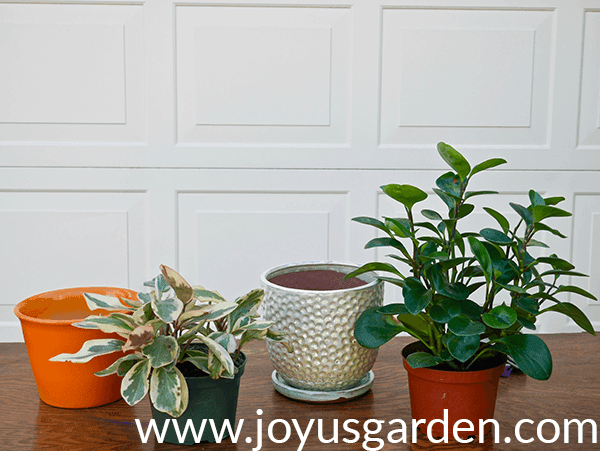
Before the repotting. The Baby Rubber got planted directly into the opalescent pot & I kept the Rainbow Peperomia in a grow pot because the root ball was so small.
This has nothing to do with repotting but if you have pets, it’s good to know:
Peperomias are non-toxic to both cats & dogs.
As I said, tabletop peperomias don’t grow too big and their root balls stay small. I repot them when the soil mix is looking old or when the roots are showing out of the drain hole(s). In other words, don’t rush to repot yours. I won’t repot the 2 you see here for at least 3 years, maybe longer.
I’m looking forward to getting a couple more peperomias but who knows when that’ll be. First, I want a Monstera deliciosa and another dracaeana and maybe a rhaphis palm. So many houseplants to drool over! What’s next on your list??
Happy gardening,

YOU MAY ALSO ENJOY:
- Repotting Basics: Basics Beginning Gardeners Need To Know
- 15 Easy To Grow Houseplants
- A Guide To Watering Indoor Plants
- 7 Easy Care Floor Plants For Beginning Houseplant Gardeners
- 10 Easy Care Houseplants For Low Light

This post may contain affiliate links, you can read our policies here.
- About the Author
- Latest Posts

Nell, the founder of Joy Us garden, was born into a gardening family and grew up in Connecticut’s countryside. After living in Boston, New York, San Francisco, & Santa Barbara, she now calls the Arizona desert home. She studied horticulture & garden design, working in the field all her life. Nell is a gardener, designer, blogger, Youtube creator, & author. She’s been gardening for a very long time & wants to share what she’s learned with you.
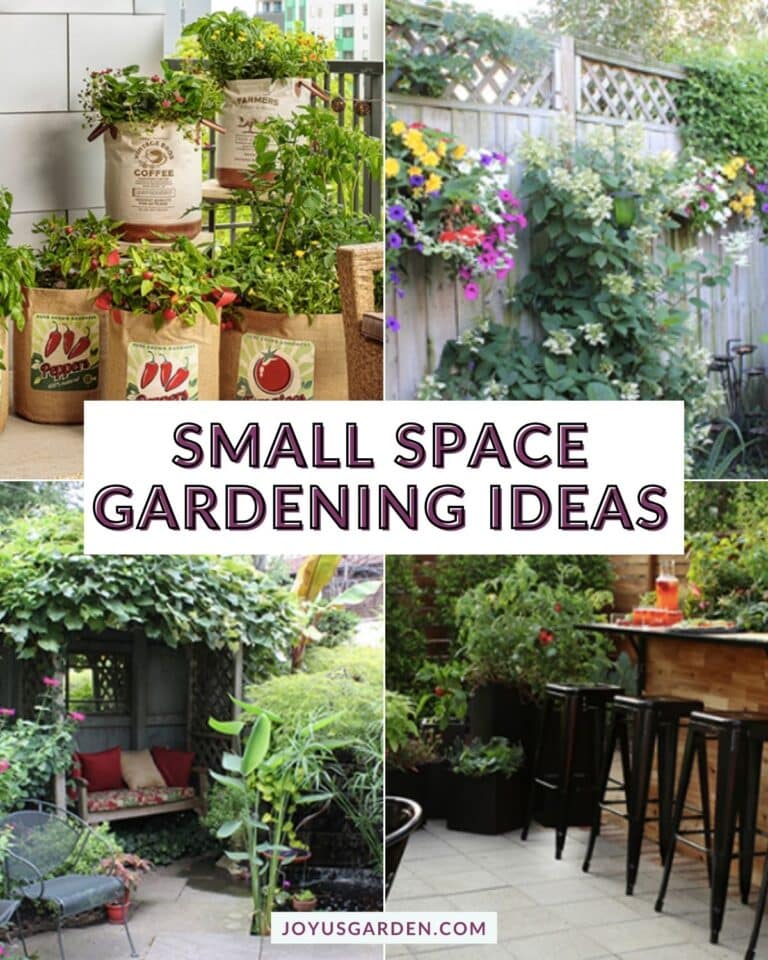
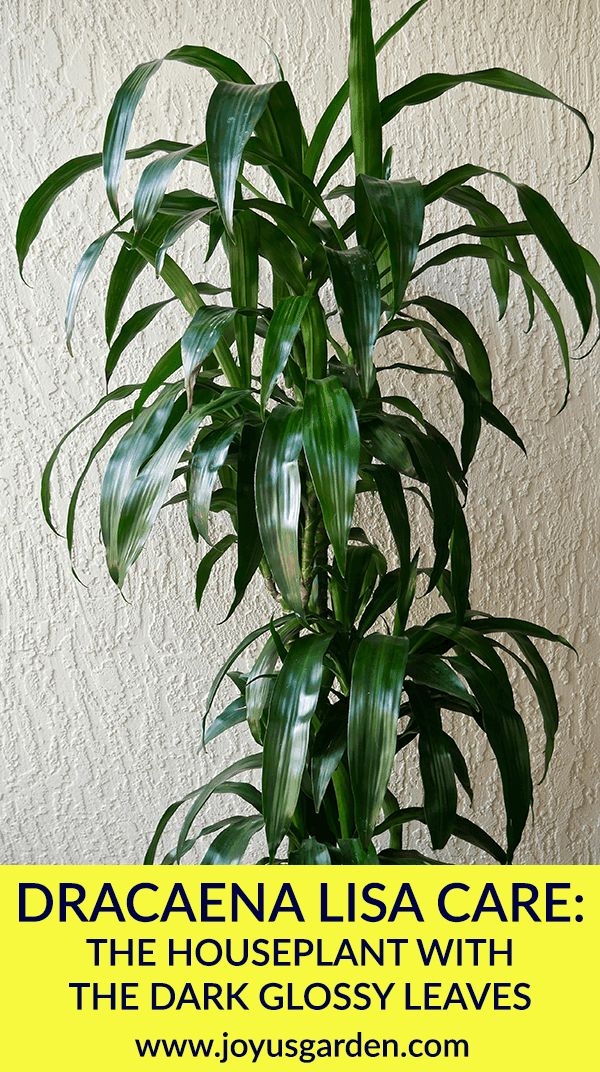

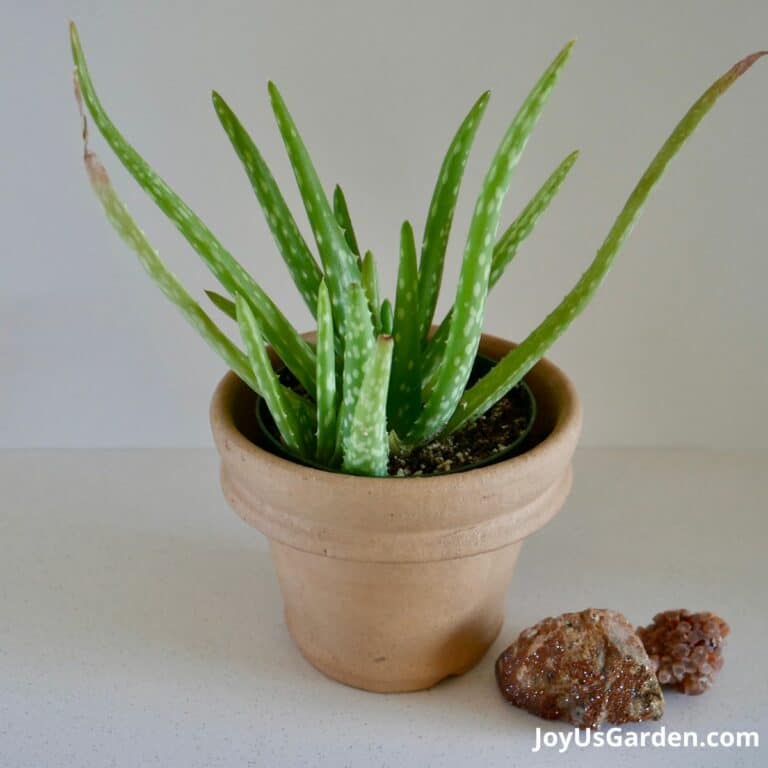
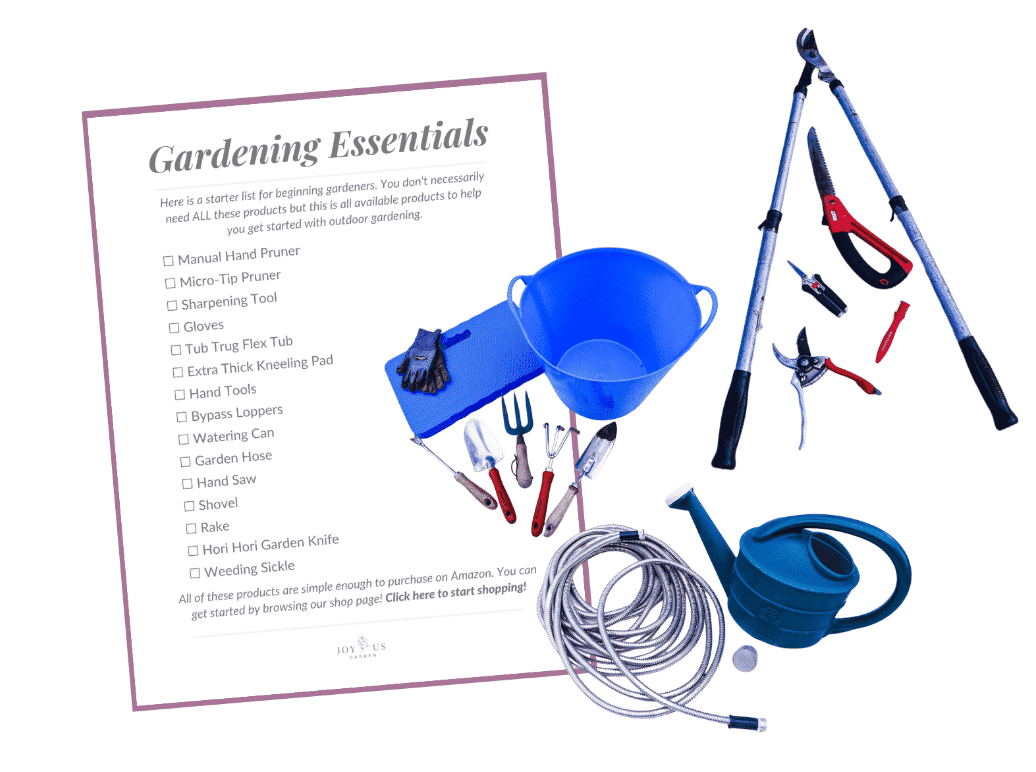
Greetings from a fellow Tucsonan just starting up with houseplants. I’m wondering if Orchid bark could be used as a top dressing for my Peperomia Frost? You put some in the soil, but is it okay to mix in soil with coconut coir? I’m also battling gnats and have been using diatomaceous earth with somewhat good results. What is your go-to gnat solution? I’m thinking of trying cinnamon; I like natural remedies wherever possible. I think I heard that apple cider vinegar can also be used on gnats, true? Thank you for your videos, which are so informative and helpful.
Hi Naomi – I add a bit of bark into mixes that would benefit from it; not all houseplants. And yes, I mixed it in with coir & potting soil. Gnats are a result of being damp so avoid any topdressing (it holds in moisture). Here’s a post on gnats: https://www.joyusgarden.com/fungus-gnats-root-mealybugs/ Hope that helps! Nell